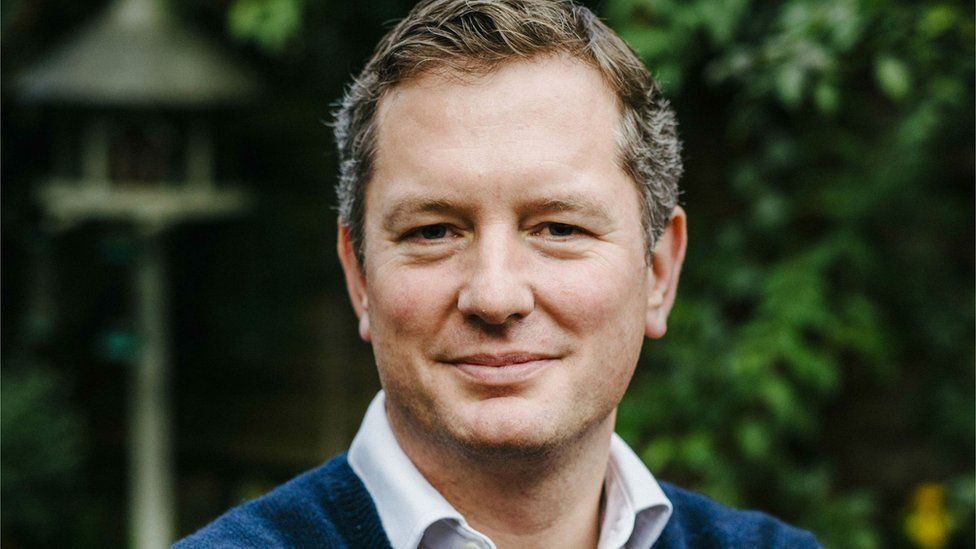Manchester attacks: Police officers have to 'venture into hell'
- Published

A senior police officer who suffered a mental illness after years of witnessing trauma says the impact of horrific events such as the Manchester attacks on the emergency services has yet to be fully understood.
"We ask police to go to the places the rest of us couldn't or wouldn't and we ask them to do it repeatedly," Ch Supt John Sutherland tells the Victoria Derbyshire programme.
"For 25 years I've watched colleagues do those things with extraordinary compassion and they do it so beautifully, but I don't think we've even begun to understand the impact it has on them to be exposed to repeated trauma."
The senior Metropolitan Police officer knows from personal experience just how serious the impact can be.
In 2013, after years serving as a frontline police officer, Ch Supt John Sutherland began to feel unwell. He went on to suffer severe anxiety, depression and crippling exhaustion.
Survivors' guilt
After going to see his GP, he was given emergency counselling, prescribed anti-depressants and signed off work.
It has taken him years to come to terms with his breakdown, which he says was caused by the trauma of dealing with the impact of horrific crimes, including murders and terror attacks.
Now, when terror attacks such as the ones in Manchester and Westminster take place, Ch Supt Sutherland says he "struggles" to deal with the extensive news coverage.
"It's the simple trauma of it," he says. "I can't look at the pictures or read much of the coverage because I care too much.
"The second thing I struggle with is my inability to respond in the ways I used to be able to. It is a survivors' guilt type thing, knowing my colleagues are in there in the thick of it but if I was to even try I would be more unhelpful than helpful like offering personal support on the front line or visiting."
Ch Supt Sutherland was a serving officer during the 7/7 attacks, when four suicide bombers killed 52 people in central London and injured more than 700. He was also at the scene of the failed 21/7 attacks, when failed bombers targeted three London Underground trains and a bus in an attempted repeat attack.
Since then, he has worked directly with colleagues who were first on the scene of 7/7 and the murder of Fusilier Lee Rigby.
"The reality is police officers venture into hell and they see things and deal with things and have to make choices that are beyond the comprehension of most of us," he says.
But that bravery can come at a cost.
'Cumulative'
"From my experience of being at murder scenes, what I understand now is that it would be impossible to venture into those places and not be affected by it. We'd be something less than human if we didn't feel something.
"I didn't understand until years later the extent of the impact of what had I'd experienced and had happened to me," he says.
"It was no single thing for me that suddenly caught up on me after 22 years, it was cumulative."
He has now chronicled his illness and the causes of it in a book, called A Life in Blue: a Memoir.
"As a society we have yet to fully understand the effect of repeated exposure to trauma on police," he says.
Ch Supt Sutherland, who now works in a non-operational role for London's Metropolitan Police, says his experiences during his career were just "normal" for a police officer.
But he says "we don't all react and respond in the same ways".
"If my story was about anything other than mental health, if it was about being shot or stabbed I'd feel no shame at all and would feel proud of myself and people's reaction would be one of equivocation. There would be a wound I could show, but mental health doesn't show up on x-rays.
"I felt desperately ashamed early on about mental illness and some of the bloke stuff of not being strong, that I'd fallen over when colleagues were still on duty - whilst I was curled up at home unable to move."
Explicit target
This week - following the atrocity in Manchester - the terror level in the UK was raised to critical, its highest level. It means another terror attack could be "imminent".
He says that alone places an additional burden on the Met's police officers.
"It is also the realisation that every police officer is an explicit terrorist target. It's in your subconscious," he says.
"That places an enormous burden, but you won't find a single officer batting an eyelid or complaining at all. They do what they do best in these circumstances and get on with it proudly."
Watch the Victoria Derbyshire programme on weekdays between 09:00 and 11:00 on BBC Two and the BBC News channel.